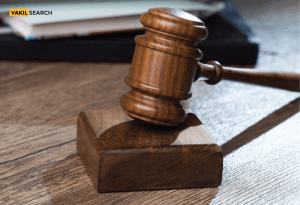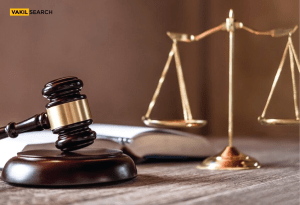The Supreme Court ruled that criminal law safeguards apply to individuals accused under the GST and Customs Acts. This decision ensures that tax-related offenses follow the same legal protections as general criminal cases. It grants accused persons the right to anticipatory bail and relief under Article 226 of the Constitution. The court also clarified that tax authorities cannot misuse arrests for tax recovery and must follow due process.
SC Strengthens Criminal Law Protections in Tax Cases
A three-judge bench, led by CJI Sanjiv Khanna, along with Justices M M Sundresh and Bela M Trivedi, ruled that tax officials must justify arrests with valid reasons. Authorities cannot detain individuals simply to recover tax dues. The court emphasized that enforcement actions must align with criminal law principles, ensuring fair treatment of taxpayers.
Previously, the MakeMyTrip judgment required a formal tax demand before an arrest. However, the Supreme Court overturned this, allowing arrests before tax quantification. Despite this, the court stressed that authorities must follow legal safeguards to prevent wrongful detention.

Criminal Law Rights: Anticipatory Bail and Article 226 Remedies
The court confirmed that individuals accused under the GST and Customs Acts can seek anticipatory bail, even without a formal First Information Report (FIR). This ruling allows taxpayers to protect themselves from wrongful arrests and misuse of power.
Additionally, accused individuals can challenge coercive tax enforcement actions in High Courts under Article 226. If tax authorities violate legal safeguards or misuse their powers, individuals can seek protection from the courts. This ensures tax enforcement does not override fundamental criminal law rights.
SC Directs CBIC to Set Clear Guidelines
The Supreme Court instructed the Central Board of Indirect Taxes and Customs (CBIC) to establish clear guidelines to prevent tax officials from misusing arrest powers. This directive ensures that enforcement actions remain legal and do not violate constitutional rights.
Legal experts believe these guidelines will bring clarity and reduce cases where tax authorities use arrests as a pressure tactic. By enforcing stricter rules, the Supreme Court has created a fairer tax enforcement system while upholding criminal law protections.

Legal Experts Support the Verdict
Many legal and tax experts welcomed the ruling. Sudipta Bhattacharjee, partner at Khaitan & Co, stated that the judgment introduces much-needed checks and balances, preventing tax authorities from misusing their power. S R Patnaik, partner at Cyril Amarchand Mangaldas, highlighted that the ruling strengthens individual liberty in tax enforcement.
Ankit Jain, partner at Ved Jain & Associates, emphasized that the decision ensures fair tax enforcement without violating constitutional rights. He noted that authorities should focus on proper investigations and legal procedures rather than intimidation tactics.
Conclusion: A Landmark Ruling for Taxpayer Rights
The Supreme Court’s ruling is a major victory for taxpayers. It ensures that tax enforcement aligns with criminal law protections, preventing wrongful arrests and safeguarding individual rights. The judgment confirms that legal remedies like anticipatory bail and Article 226 remain available to those accused under GST and Customs laws.
By directing the CBIC to issue guidelines, the court ensures that tax authorities act within constitutional limits. This decision balances government tax enforcement with taxpayer rights, creating a fair legal framework for all.
Stay updated with the latest news and other trending updates! Visit Vakilsearch News for exclusive insights.
- Kerala Court Orders NICL to Compensate ₹3.5L for Stolen Car - March 1, 2025
- Tamil Nadu Slams Tax Cut: Finance Minister Questions Centre - February 28, 2025
- Criminal Law Safeguards Apply to Accused in GST, Customs : SC - February 27, 2025

